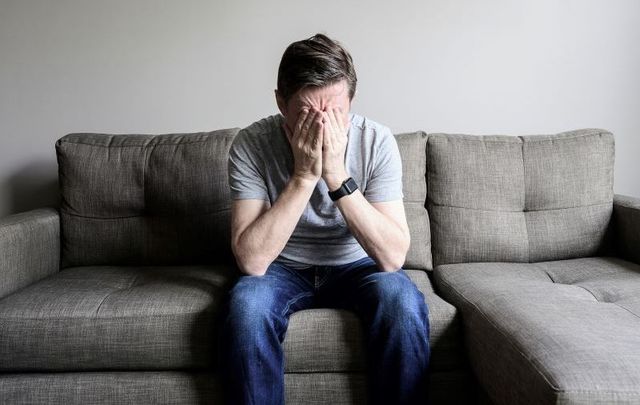Irish organizations are working to make sure Irish and Irish Americans in the US are looking after their mental health through the pandemic crisis.
Editor's Note: Joseph Burke is a mental health researcher from Ireland who is now conducting research at the University of Edinburgh. You can follow him on Twitter here: @Joseph_P_Burke.
John Hayes, a native of Co. Tipperary, has lived in the US for some 55 years. He knows the toll the COVID-19 pandemic is taking on mental health. A few days ago, his friend’s brother unexpectedly took his own life.
“Anyone who is on the edge," Hayes said, "they are trying to keep well but this has driven them way over. It has put them in a bad spot.”
In May, the American Psychological Association’s (APA) Stress in America report saw the first significant increase in average reported stress since the survey began in 2007. COVID-19 is a crisis for social supports that are critical to sustaining the mental health of community members. Associate Executive Director of Practice Research and Policy at the APA, Dr. Lynn Bufka told me: “We know that social support contributes significantly to overall well-being and is particularly necessary when managing stress.”
The risks to mental health associated with this crisis are apparent in the Irish American community. Steve Lenox, President of the Irish Network USA, says that: “Members of the Irish immigrant community, like nearly everyone, are feeling a great sense of isolation. This may be even more compounded in the immigrant community where individuals are already far away from their homes and families.”
Similarly, Siobhan Curnyn, a social worker with the Aisling Irish Community & Cultural Center in Yonkers, New York says she is “seeing many new people who are experiencing anxiety for the first time. These are people asking for help who had always been proud of being self-sufficient. This is a completely new and very unwelcome situation that they’re finding themselves in.”
Read More: New York's Aisling Irish Center's mission undeterred by COVID-19
In recognition of this difficult situation, Irish American organizations are urgently mobilizing their links in the community to ensure vulnerable individuals are not left isolated and at risk.
Lenox describes how the Irish Network USA has started ‘virtual coffees’ over Zoom to give their members an opportunity to stay connected, the first of which was hosted by Aileen Dibra of the Coalition of Irish Immigration Centers.
They also recently welcomed Ambassador Dan Mulhall to speak about Sláinte 2020 which is a new initiative started by the Aisling Center, along with the Emerald Isle Immigration Center, NYGAA, New York Irish Center, and United Irish Counties, to keep communities together and help alleviate the anxiety prevalent at this time.
The Aisling Center hopes Sláinte 2020 can help it continue its counseling and telehealth services, as well as the distribution of food and supermarket cards to people in need. Curnyn says: “We are fortunate to be located in a close Irish community. As a social worker, many of my referrals have always come from friends or family members who are concerned about loved ones. This most definitely has remained the case.”
It is important to remember that it is normal to have feelings of stress at this time. When distress becomes too much to cope with psychological help is available and effective. In many cases, Dr. Bufka reminds us, we can take active steps to avoid stress overwhelming us. This includes maintaining good sleep habits, adequate nutrition, and hydration, regular physical activity, taking breaks from negative news, finding time to do things that are calming or restorative, ensuring that activities bring purpose to one's day - and crucially maintaining our social supports.
From his New York home, John Hayes now thinks back to his days in Alaska during the 1970s where he was a construction worker undertaking 12-hour days, 7 days a week for 9 weeks at a time.
“I was in quarantine for 20 years,” he says. What got him through those long days then is what he sees getting us all through this now: “Keep in touch with people, keep in touch that’s the thing. Keep in touch, no matter what.”
If you are concerned about your mental health, a list of support services can be found online here. You can also contact the Aisling Center, based in New York, at 914-237-5121 or email [email protected]
For more information about Sláinte 2020, visit their website.
Burke is currently conducting a survey, Understanding Stress at Times of Crisis - Our Minds and Bodies during COVID-19 Pandemic Restrictions, through the University of Edinburgh. He encouraging people to fill out the online survey here.
Read More: My mother’s mental health and its ripple effect on my life




Comments